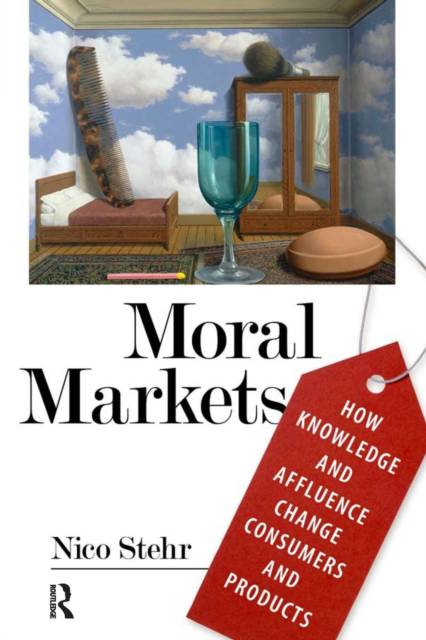
- Afhalen na 1 uur in een winkel met voorraad
- Gratis thuislevering in België vanaf € 30
- Ruim aanbod met 7 miljoen producten
- Afhalen na 1 uur in een winkel met voorraad
- Gratis thuislevering in België vanaf € 30
- Ruim aanbod met 7 miljoen producten
Zoeken
Moral Markets
How Knowledge and Affluence Change Consumers and Products
Nico Stehr
Paperback | Engels
€ 126,95
+ 253 punten
Uitvoering
Omschrijving
Nothing affects modern society more than the decisions made in the marketplace, especially (but not only) the judgments of consumers. Stehr's designation of a new stage in modern societies with the term "moral markets" signals a further development in the social evolution of markets. Market theories still widely in use today emerged in a society that no longer exists. Consumers were hardly in evidence at all in early theories of the market. Today, growing affluence, greater knowledge, and high-speed communication among consumers builds into the marketplace notions of fairness, solidarity, environment, health, and political considerations imbued with a long-term perspective that can disrupt short-term pursuits of the best buy. Importantly, such social goals, individual apprehensions, and modes of consumer conduct become inscribed today in products and services offered in the marketplace, as well as in the rules and regulations that govern market relations. Stehr uses examples to illustrate these trends and build new theory fitting today's changing consumerism.
Specificaties
Betrokkenen
- Auteur(s):
- Uitgeverij:
Inhoud
- Aantal bladzijden:
- 288
- Taal:
- Engels
Eigenschappen
- Productcode (EAN):
- 9781594514579
- Verschijningsdatum:
- 30/07/2008
- Uitvoering:
- Paperback
- Formaat:
- Trade paperback (VS)
- Afmetingen:
- 152 mm x 226 mm
- Gewicht:
- 385 g

Alleen bij Standaard Boekhandel
+ 253 punten op je klantenkaart van Standaard Boekhandel
Beoordelingen
We publiceren alleen reviews die voldoen aan de voorwaarden voor reviews. Bekijk onze voorwaarden voor reviews.











